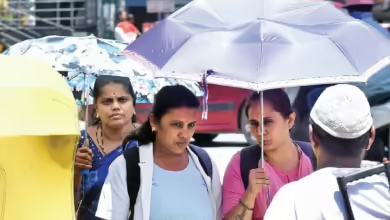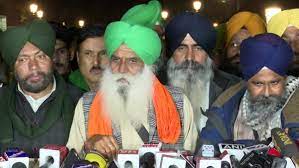Kerala’s Constitutional Crisis: Governor versus. Government
Kerala Governor Arif Mohammed Khan requested that Chief Minister Pinarayi Vijayan take action against Finance Minister K N Balagopal in a letter dated October 25, 2022, since the governor had “withdrew his pleasure” from the minister. Balagopal “had violated the oath and undermined the unity and integrity of India,” the governor said. The Governor was prompted to “withdraw his pleasure” by a speech the minister gave on October 19 at a gathering at Kerala University.
Some individuals who are used to the norms in places like Uttar Pradesh may find it difficult to comprehend the democratic character of Kerala’s universities, according to Balagopal. He was alluding to Khan’s ongoing critique of the operation of the State’s institutions. The Chief Minister, however, did not respond to the letter and instead maintained his deliberate quiet on the Governor’s often made inflammatory statements.
The notion of the “Governor withdrawing his pleasure on a Minister” was rejected by constitutional experts. P D T Achary, a former secretary general of the Lok Sabha, claims that “the doctrine of the Governor’s pleasure upon the State Government is a different concept.” He asserts that the Governor’s pleasure is influenced by the majority of the Government that is now in power. According to Achary, “the pleasure begins when there is a majority in the legislature and ends when the majority is lost.” Any specific cabinet minister has no bearing on the governor’s satisfaction.
Arif Mohammed Khan, though, couldn’t remember. Even recently, he used the Governor of Tamil Nadu’s ‘dismissal’ of cabinet Minister Senthil Balaji to defend his actions.
The conflict between the governor and the Kerala government began in January 2020, when the previous LDF government was in power. He hesitated to recite the citation in opposition to the Citizenship Amendment Act. The Keralan government opposed the CAA vehemently. In December 2019, the Government overwhelmingly approved a resolution against CAA. In opposition to the bill, CPI M and LDF also started statewide demonstrations. But the Governor resisted joining in. He said that he was just reciting the 18th paragraph of the typical Policy address because the Chief Minister asked him to, but he did not see it as being within policy or program. The policy speech’s 18th sentence mentioned CAA.
The Governor once again declined to provide his approval for the usual policy address to be read before the Assembly in February 2022. This time, he was enraged by a move made by the General Administration Department’s then-secretary, who voiced “displeasure” at the Governor’s choice to choose BJP leader Hari S Kartha as his supplementary PA. In the letter to Raj Bhavan, it was said that there was no history of political figures being employed at Raj Bhavan and that the Government had only accepted the appointment because the Governor “wanted” it.
Chief Minister Pinarayi Vijayan chose to work toward reconciliation rather than cause a split because he wasn’t in the mood to fight. As a consequence, Jyothilal, the GAD Secretary and a senior IAS Officer with a spotless service record, was handed the door to go. The Governor consented to sign the policy speech, and he was sent to another agency. Evidently, Jyothilal’s communication to the Governor did not represent his viewpoint, but rather that of the government. He still had to pay the price, however.
Dramatic turned out to be the Governor’s delivery of the traditional address in the Assembly. The opposition yelled slogans in protest as usual, and the governor responded by telling the opposition leader to “rise up to his position” in order to show his discontent. The opposing party organized a walkout. The members of the governing front, on the other hand, remained in the Assembly hall but maintained a conspicuous quiet during the speech. The members would often applaud raucously when the governor read out the accomplishments of the government prior to the address. It didn’t take place.
Administrative conflicts at state institutions
Arif Mohammed Khan wrote notifications to the vice chancellors of nine state universities in Kerala on October 23, 2022, requesting them to provide justification for not calling for their resignation. The Vice-Chancellor was requested to submit their resignation by the next day at 11:30 AM.
The search committees of the affected Universities only submitted one candidate rather than a panel of names for the nomination of the VC, which was against the UGC norms, This served as the governor’s justification for taking the extraordinary step of calling for his immediate resignation, which sparked a riot in Kerala. Everyone became impatient, especially the chief minister. The Governor and the left-wing leaders engaged in an outright verbal battle.
There is a lot of controversy around the Governor’s authority as Chancellor. The relevant legislation under which universities are established do not provide the Chancellor the authority to request the VC’s resignation on such reasons. Vice-Chancellors, however, refused to comply with this requirement and instead petitioned Kerala’s High Court to quash the unusual decision. The High Court issued a stay and let the VCs to keep their jobs.
Bills are kept in cold storage.
A constitutional crisis in Kerala, like to those in other States like Tamil Nadu, Rajasthan, and West Bengal, was made possible by the conflict between the Governor and the Government. The Governor will no longer serve as Chancellor of the State Universities as a result of the Government’s decision and the passage of the necessary legislation. In this respect, four bills (the University Laws Amendment Bill) were enacted and delivered to the governor for approval. He neither approved it nor sent it back to the Legislature for clarification. Nine laws in all are awaiting the governor’s assent. The other bills left unaffected by the governor include the Kerala Public Health Bill of 2021, the Kerala Lok Ayukta Amendment Bill of 2022, and the Kerala Cooperative Societies Amendment Bill of 2022.
The Constitution doesn’t provide an answer to this issue. An officer in the Legislative Assembly claims that the drafters of the Constitution “had not anticipated a situation in which Governors having political differences with the Government would delay the Bill.” Sources in the Chief Minister’s office claim that the government is thinking of taking legal action by submitting a writ petition to the Supreme Court. The Government believes that the Apex court is the only institution that can break this impasse.







